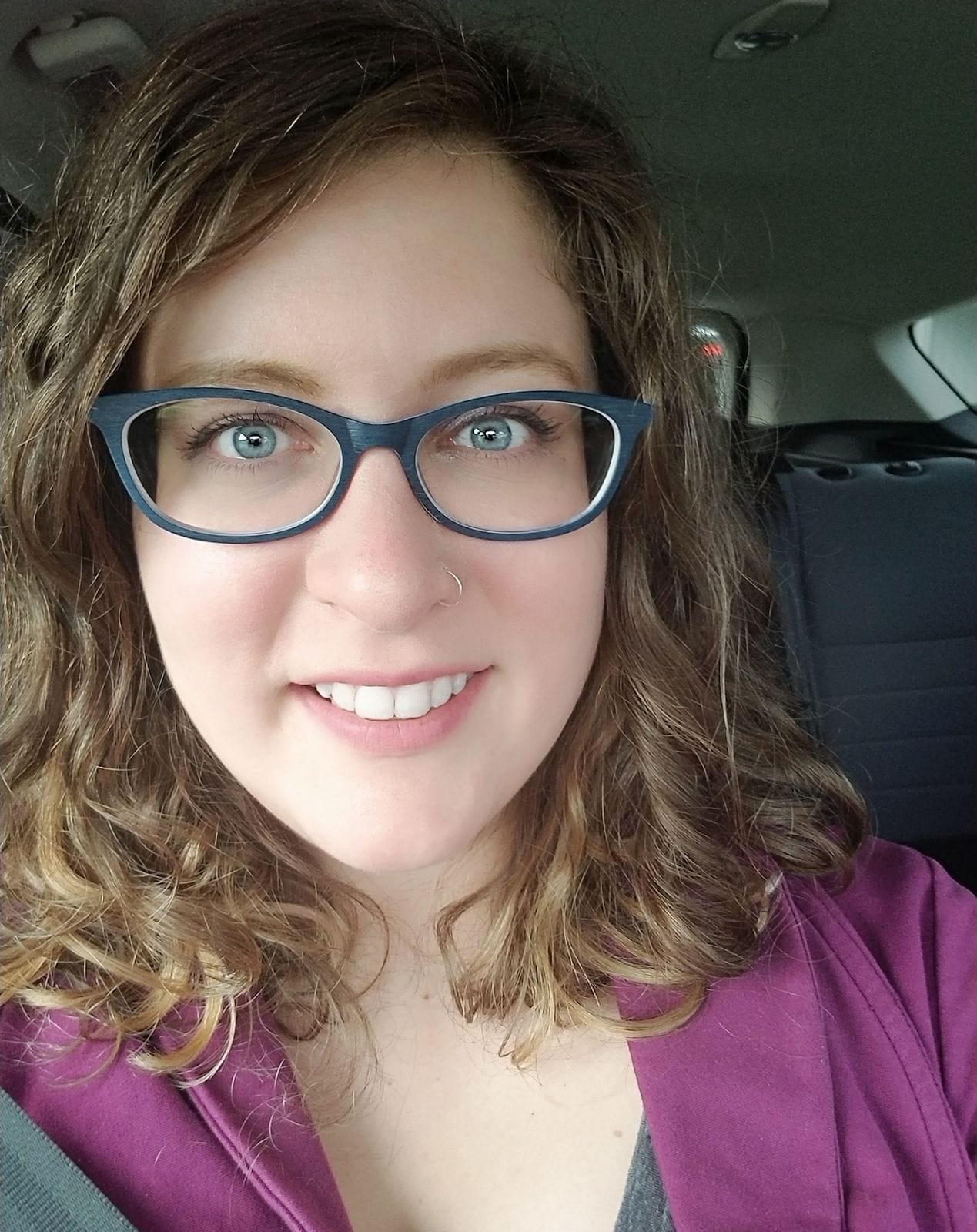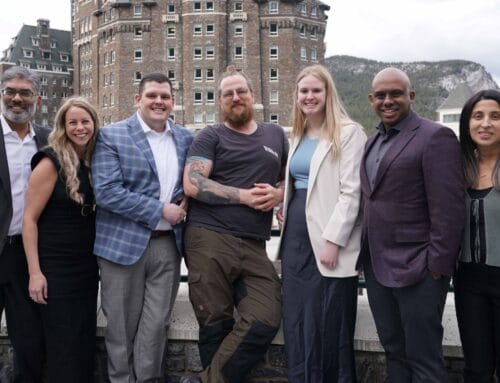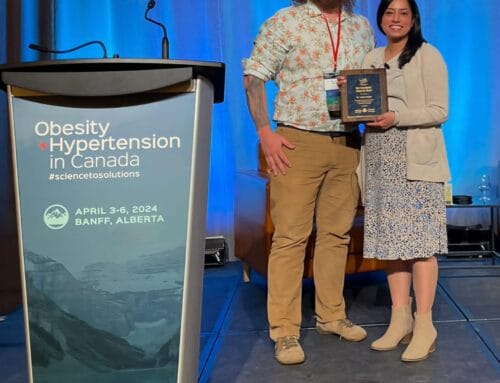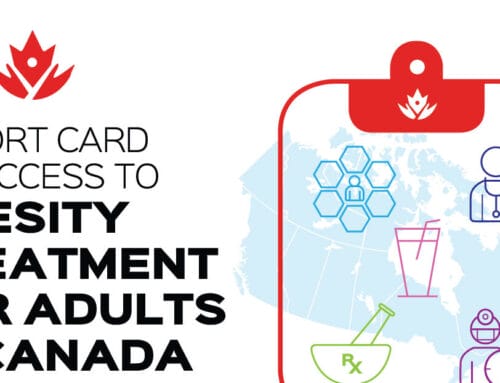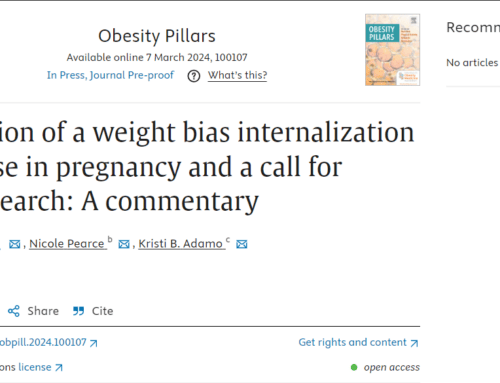by Melody Harding
A few months ago I was able to share with the Obesity Canada community (via this newsletter) that I had successfully settled my Human Rights Complaint with Nova Scotia’s Department of Health and Wellness. After 13 years of trying to obtain a breast reduction through my province. I had had enough; I wasn’t going to accept another “no”. I fought for over two years and – thanks to both my stubbornness and the support of many individuals – I was able to successfully cause a change in policy. Nova Scotia no longer demands patients have a Body Mass Index (BMI) of 27 or less; rather, the province’s health insurer now states a client’s suitability for surgery is to be evaluated on a case-by-case basis. This is more in line with the rest of Canada’s provincial guidelines, and removes the antiquated, stigmatizing BMI measurement that has been inappropriately used as a measurement of individual health for over a century now.
I attended a plastic surgeon consultation in late September. So, I am on the list for surgery now, right?
Nope.
If you are detecting anger, frustration, and exasperation from the above, you would be correct. I am probably more than a little jaded, too.
Despite the province’s removal of the BMI criteria for breast reduction surgery coverage, I am now being faced with surgeons who state it is “unprecedented” to perform this surgery on individuals with a BMI over 30. Some are apparently “considering” performing the surgery on persons with a BMI as high as 34, but even that seems to be considered “risky” per my conversation with the surgeon.
You read that right: after over two years of fighting and a win, I am still hearing “BMI” this and “BMI” that. The surgeon hasn’t even looked at me (my breasts OR my scoliosis, sloping shoulders, and the rock hard muscles in my neck). He can’t get past my BMI! Never mind the fact that a private surgical clinic (owned by plastic surgeons registered with the Nova Scotia College of Physicians and Surgeons and who perform the surgery for the health department) in my province approved me for surgery at a BMI of 49.9 in 2017. So, breast reduction surgery with a BMI over 30-34 is safe and has precedent if I pay for it, but unsafe and unprecedented if the province pays for it? What?
Doesn’t make much sense, does it?
There are many options out there that could be used instead of BMI to help measure health when obesity is part of the equation. Dr. Arya Sharma, Scientific Director of Obesity Canada, has co-developed (with Dr. Robert Kushner) the Edmonton Obesity Staging System (EOSS) Tool, for example (PDF). Per Dr. Sharma’s website, this tool “ranks severity of obesity based on clinical assessment of weight-related health problems, mental health and quality of life”. There’s also the King’s Obesity Staging Criteria (KOSC) which is a “four-graded set of health related domains” measuring “airway/apnea, BMI, cardiovascular risk, diabetes mellitus, economic complications, functional limitations, gonadal dysfunction, and perceived health status/body image.”
Doesn’t that sound a bit more in line with measuring the health of an individual than depending on a calculation of height times weight squared (BMI) alone? These measurements are designed more so for determining health in relation to bariatric surgery need/suitability but I feel these incredibly educated, intelligent, talented physicians are probably better suited to determine a measure of health than a statistician from the early 1800s who tried to find a way to measure the average size of the population.
Since my initial consultation I have seen not one but two anesthesiologists who have reviewed my medical file (including documents related to two previous surgeries). They have confirmed my airway is accessible/clear, and advised me that I have lost enough weight to reduce my BMI from 49.9 to 42.8. Both of these extremely educated medical professionals – charged with airway management and safely anesthetizing me for surgery – have stated there is no problem with me undergoing this procedure (quoting anesthesiologist #2: “I don’t see what the problem is – you’re fine”).
And yet, despite provincially licenced surgeons approving me for surgery if it’s out of pocket and two anesthesiologists telling me I am safe for surgery, my need for surgery still hasn’t been approved by the plastic surgeon, let alone the province. The stack of evidence I bring to my appointments hasn’t been glanced at. It doesn’t matter that I have informed myself extensively on risks, potential complications, recovery, etc. and still want to move forward. It also doesn’t appear to matter that I am considered to be generally healthy and have been taking steps to further improve my health on a continuous basis for years. My body itself and the health of my insides don’t matter in the least, apparently.
None of it matters: my height times weight squared is “too high,” period.
This is what it all comes down to: Stigma. Bias. Lazy measurements that are easy and quick to calculate. I will admit that after everything I have endured thus far it still feels like I am nothing more than a bunch of numbers. A health card number, a BMI score.
An expense.
Fortunately, I know better. I know I am a person with value. I am a human being living with obesity who is trying desperately to improve her health in more ways than one. I know I am worthy of a healthy body and mind – obese or not.
As you can probably tell, this process has been frustrating – but it’s also extremely educational. I have learned my strengths, my limitations and my areas of struggle. I have learned that one decision in my favour does not mean I have won the war. I have learned to keep going. Weight bias and stigma in the realm of medicine is still rampant, and it seems old habits truly do die hard. Luckily, I am stubborn, determined and just angry enough to continue pushing for new habits, modern tools, further education and for what is right. I am discovering that advocacy never truly ends.
I admit I hesitate to call myself an advocate as I put so much respect and admiration into those that fall under that title, but the longer I continue – despite the crushing stigma I am presented with – the more I can accept the designation. I can acknowledge that I am advocating for not only myself and my own health needs, but also for my mother and the 50+ women who have reached out to tell me their stories of pain, disability and depression due to their macromastia. Pain, disability and depression that could be helped if only the health community could rise above the weight stigma and abandon old, simple measurements never intended for individual health.
I have endured so much in this fight the last two and a half years and knowing I must continue is honestly an exhausting thought. Yet, I persist. The support I have received from my friends, family, Obesity Canada and complete strangers keeps me going. I can’t give up when so many lives could be improved – even just a little bit – by my efforts.
I continue. You should too.
All my best,
Mel

